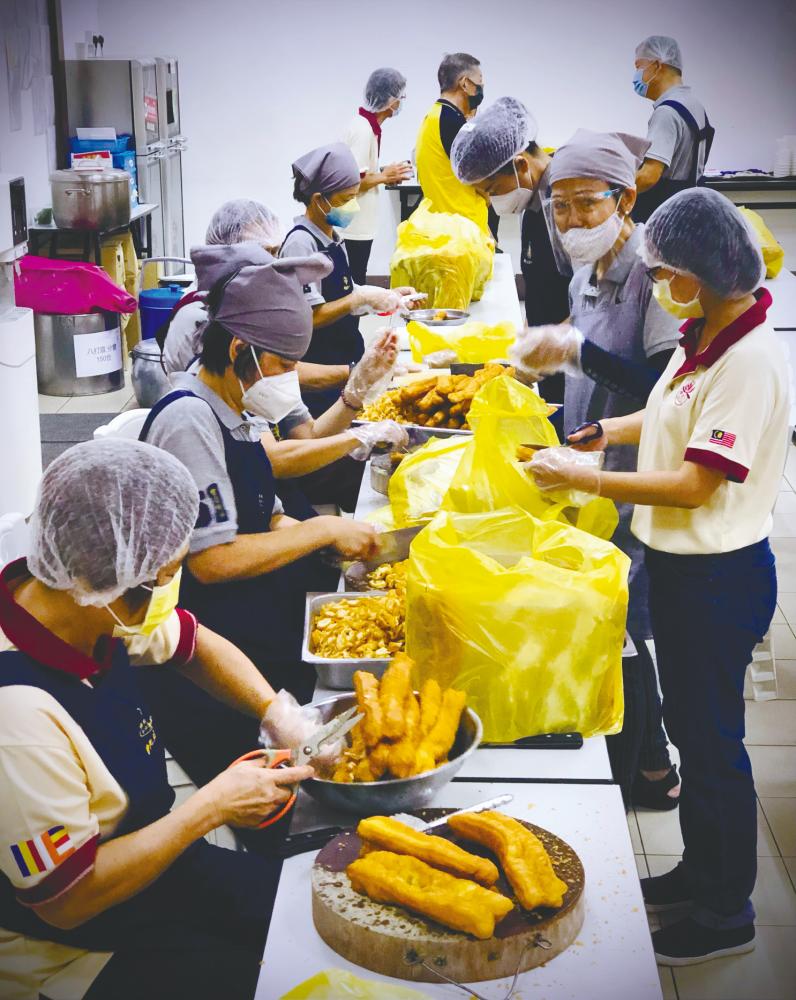PETALING JAYA: Malaysians have a knack for bringing down racial and religious barriers to join hands in times of disasters.
This was clearly demonstrated during the floods that hit several states across the country in December.
Hundreds got together to ferry victims to safety, distribute essentials and, most importantly, provide meals.
Temples and mosques turned into soup kitchens, from which hundreds of thousands of meals were prepared and delivered to the victims.
For example, at Gurdwara Sahib Petaling Jaya, an estimated 22,000 meals were prepared and distributed daily across Selangor, Malacca and Pahang from the day the floods hit on Dec 18 until the floodwaters receded completely in early January.
Organisation vice-president Jasbir Kaur said the food preparation and distribution operations began when they started receiving calls for help on their hotline.
“We started cooking whatever we had in store so that those affected by the floods could get a hot meal,” she told theSun.
But three days into the disaster, the demand became so overwhelming that they had to appeal for volunteers to help in food preparation and distribution as well as donations in cash and kind to keep their operations going.
Thankfully, hundreds turned up to help.
“Many of us are trained to cook large quantities of food, so it was not a problem,” said Jasbir.
There were people who came in to help cut vegetables, prepare ingredients and to pack the meals. Those who had trucks helped to transport the food to the victims.
Donations also poured in. Jasbir said a vegetable seller in Cameron Highlands called to offer greens.
Others also chipped in with mattresses, Covid-19 self-test kits, dry food items, bottled mineral water, paracetamol and insulin.
Gurdwara Sahib committee member Avtaar Singh said they were able to distribute the aid quickly because everyone knew that the victims needed help desperately and so they worked like it was an emergency.
At the Surau Platinum Al Mawaddah in Shah Alam, it was a matter of ramping up a remodelled weekly cookout routine.
Committee member Khairuddin Zakaria said the surau’s geng dapur, or “kitchen gang”, comprising men and women in Seksyen 7 of Shah Alam, would usually prepare food for distribution after Friday prayers.
He said the weekly activity was temporarily stopped in line with the standard operating procedures (SOP) to curb the spread of Covid-19. To ensure that they did not flout the SOP, the surau committee bought ingredients and distributed them to volunteers.
“The volunteers would cook the meals at their homes, packed them, while others would pick up the food for delivery to flood relief centres.”
At Fo Guang Shan Malaysia, a Buddhist organisation based in Selangor, devotees marked the Laba Festival early by preparing more than 9,000 servings of laba congee (porridge) for flood victims.
The annual festival is celebrated on the eighth day of the 12th month of the lunar calendar to mark the enlightenment of the Buddha.
Laba congee is served on this occasion.
Donations in cash also poured in to cover the cost of the congee ingredients that comprised rice, yam, carrots, peanuts, mung beans, vegetarian meat substitutes and dried food.













